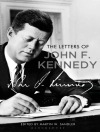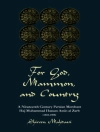Fidel Castro had ruled the island of Cuba for fifty-two years when ill health forced him to step down in 2008. Over the course of that time, he changed Cuba from a republic to a communist state and became one of the most divisive leaders in the second half of the twentieth century. For some, he is a champion of humanitarianism, socialism, and environmentalism. For others, he is a monster and dictator who perpetuated human rights abuses at home and abroad.
Providing a rare, evenhanded account of Castro’s life, journalist Nick Caistor brings together interviews with people who have known Castro with discussion of the ideas that drove him. Caistor follows Castro’s life from his birth as the illegitimate son of a wealthy farmer in 1926 to the developing of his leftist, anti-imperialist ideas at the University of Havana and his primary role in the Cuban Revolution in the 1950s. He explores Castro’s economic and military alliance with the Soviet Union and his hostile relationship with the United States while also looking at how he simultaneously introduced free health care and education while squelching freedom of the press and suppressing dissidents. As Caistor shows, Castro’s numerous writings on politics, capitalism, and other topics have influenced leaders from Nelson Mandela to Hugo Chávez, but allegations of corruption, human rights abuses, and dictatorship never ceased during his long career.
Using stories and opinions to enliven the debate about Castro’s choices, strengths, and weaknesses, this concise biography gives readers the opportunity to judge for themselves how they feel about the former Cuban president.












